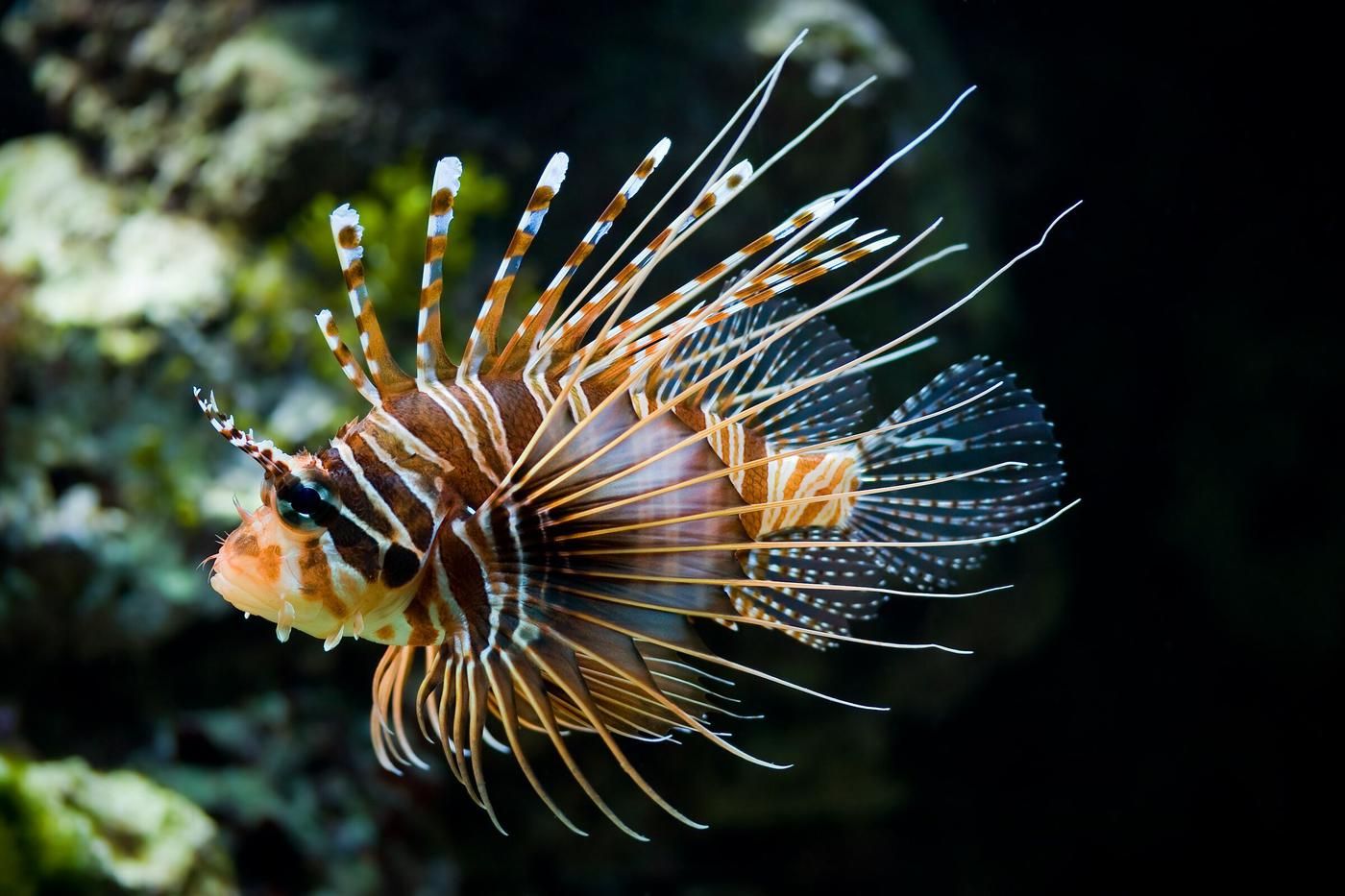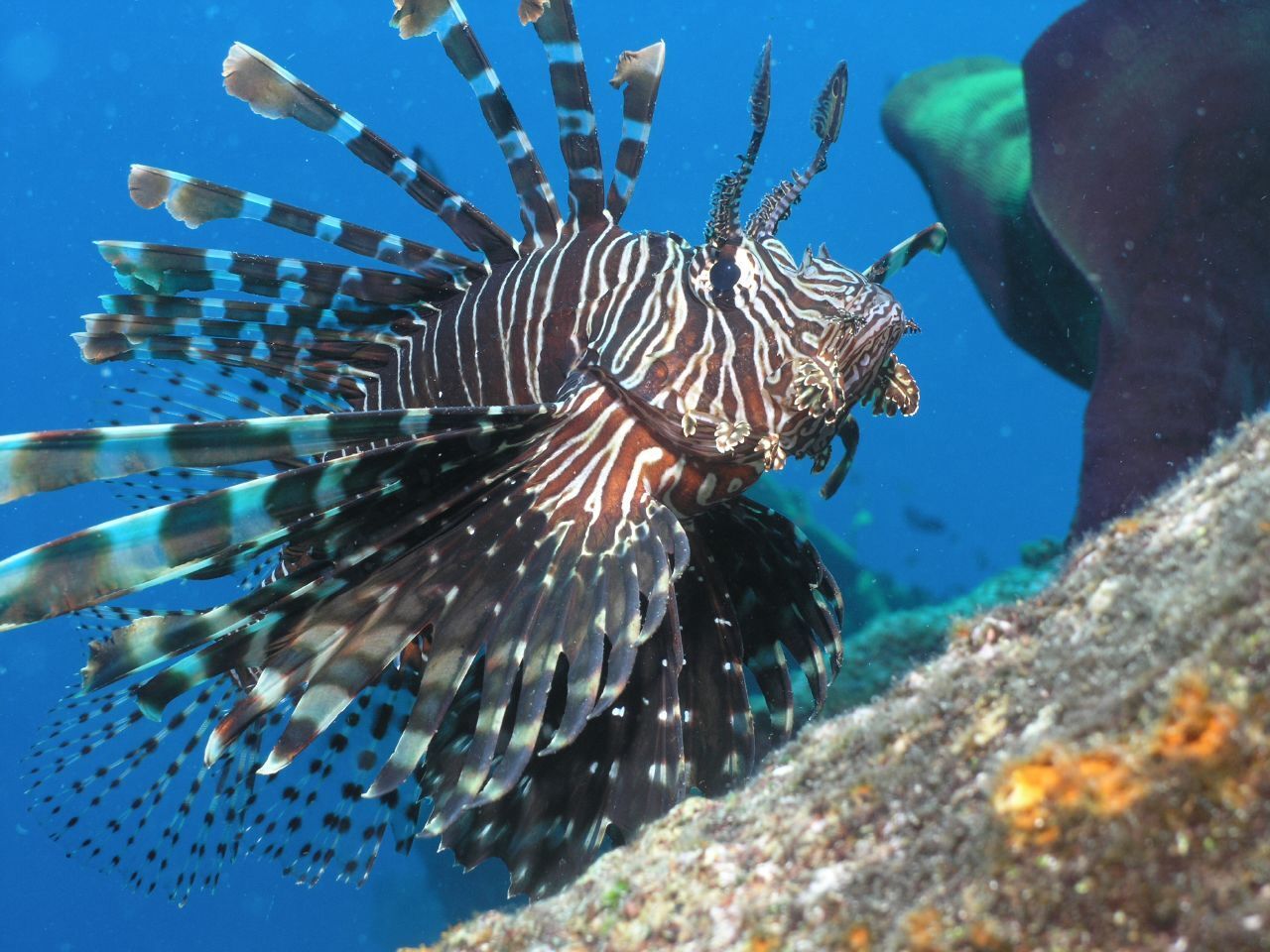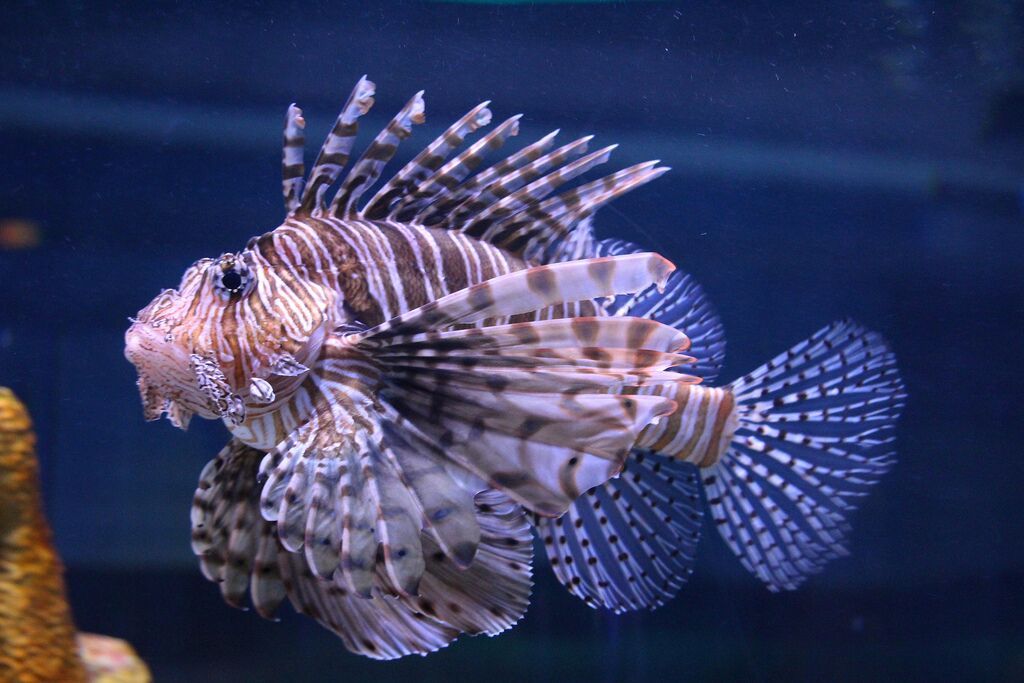The king of the jungle...in the water?
- Devi Seijkens
- Articles
- 3 minutes (620 words)
During my childhood I was fortunate enough to enjoy travelling to many amazing destinations with my family. My dad is a native from Curaçao and when I was sixteen, we finally got to visit the amazing island. I have always had an interest in fish, I used to go snorkeling wherever we went and more recently I even started fishing. However, during my time in Curaçao, my dad and I decided we wanted to get our diving licenses. It was simply the perfect place to spend a lot of time underwater, as Curaçao is known to be one of the premier spots when it comes to underwater wildlife. It was during the dives we took in the beautiful reefs of Cas Abou beach that I first laid eyes on what I believe is a beautiful genus of fish: Pterois, or commonly referred to as lionfish. It was this quite small white with dark striped fish with all kinds of spikes. Our instructors warned us not to come too close, as their spikes are venomous. But I was absolutely fascinated by the looks of the lionfish. Unfortunately, they are not as nice as their appearance would suggest.
Lionfish are a predator native to the Indo-Pacific region. They are commonly found around the edges of reefs, corals, in lagoons and around rocky surfaces up to 50 meters deep. However, they have been recorded to be found up to 300 meters deep on several occasions. They prey on invertebrates and small fish and can be quite hostile towards other reef fish. They have even been documented around the Indo-Pacific to be hostile towards divers and researchers. Mimic octopi are actually known to mimic lionfish as a way of intimidating potential predators. But their hostility towards their natural environment seems to be the least of the issues surrounding lionfish. Lionfish have become an invasive species for the East coast of the United States and the Caribbean. Some researchers claim them to be one of the most aggressively invasive species on the planet. There are many thoughts on how the lionfish could have invaded the area, but there are several factors that could have contributed. Firstly, lionfish could appeal to many aquarium enthousiasts as they are gorgeous fish that would be a nice addition to any aquarium. However, they are quite difficult to take care of and there could be a chance that some enthousiasts lost their interest and set theirs free, with the invasion as a result. There is also a chance that this was supported by the arrival of hurricane Andrew to the Florida coast in 1992. A large aquarium was destroyed during the hurricane, causing six lionfish to be released into the ocean. When investigating the quick spread of lionfish however, genetic testing indicates that many of the species found around the Caribbean are related and their rise is due to larval dispersion, rather than intentional release.
The implications for the invasiveness of lionfish are quite large. It is believed that the invasion by lionfish could reduce the diversity of the Atlantic reefs significantly. While having no natural predator themselves, they prey on the wide variety of juvenile fish themselves. It has come to a point that many of the nations where lionfish have become a problem have given out licenses to hunt the fish. A nice complement to this is that, when well prepared, lionfish can be a very tasty part of a healthy meal. But while there are fishermen and divers trying to hunt them down, they continue to pose a major threat to the wildlife in the Atlantic. This could lead to lions not only ruling the jungle, but also a major part of the Atlantic Ocean.





Comments
Log in to read and post comments